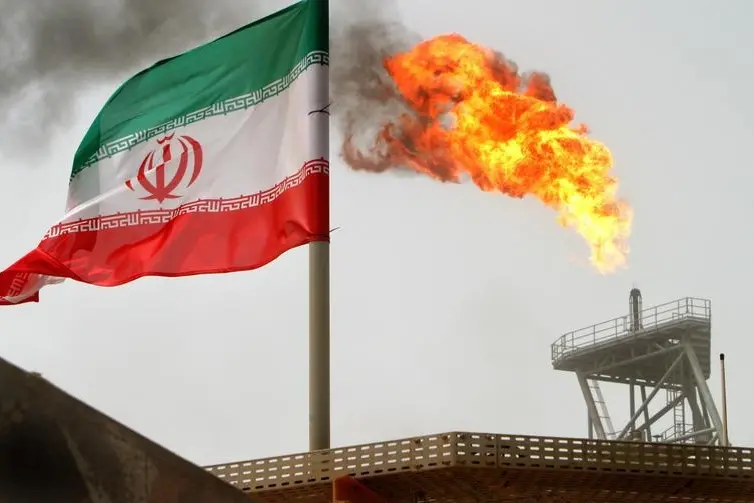PHOTO
(Adds Saudi calls for boycotts)
DUBAI, Jan 7 (Reuters) - Iran and Saudi Arabia took further steps to sever commercial ties on Thursday, intensifying a feud between the regional rivals, as Tehran announced a ban on imports from Saudi Arabia and Saudi groups called for boycotts of Iranian products.
Iran's government said it had forbidden imports from Saudi Arabia after a cabinet meeting chaired by President Hassan Rouhani on Thursday morning, according to state news agency IRNA.
The cabinet also reaffirmed a ban on Umrah pilgrimages to Mecca - which are both lucrative for Saudi Arabia and important to Muslims - first imposed in April in response to an alleged sexual assault on two male Iranians by Saudi airport guards.
Trade between Saudi Arabia and Iran is small compared with the size of their economies, but tens of thousands of Iranians travel to the kingdom every year to complete the haj as well as Umrah pilgrimages made outside of haj season.
Saudi Arabia severed ties with Iran on Sunday over the storming of its embassy in Tehran, intensifying a diplomatic crisis set in motion by the kingdom's execution of a prominent Shi'ite cleric the previous day.
Foreign minister Adel al-Jubeir told Reuters on Monday the kingdom was halting air traffic and trade links with the Islamic republic, although none of the few Saudi companies with interests in Iran has yet announced changes to their operations.
Savola, the kingdom's largest food products company, which earns some 13 percent of total revenues from Iran, said on Tuesday it plans to maintain its investments there despite the standoff.
But it and the few other Saudi companies doing business in Iran faced increasing public pressure over the course of the week, as consumer and business groups called for boycotts of Iranian products.
Chamber of commerce leaders told local daily newspaper al-Riyadh that Saudi businesses should replace Iranian goods with alternatives from other Arab and Islamic countries.
A trade boycott would cause the kingdom little economic harm, they said, noting that imports from Iran mainly consist of pistachio nuts and pickles.
Consumer activist group Mogatah also urged Saudi businesses to remove Iranian goods from their shelves, posting photos of Iranian products for sale in Saudi Arabia on social media along with calls to support the government's policy.
The group scolded Swedish home goods retailer Ikea for selling a Persian carpet with a "made in Iran" label at its stores in Saudi Arabia, and applauded a local Riyadh-based carpet shop chain for deciding to end sales of Iranian rugs.
(Reporting by Katie Paul and Bozorgmehr Sharafedin; editing by David Stamp) ((Katie.Paul@thomsonreuters.com;))
DUBAI, Jan 7 (Reuters) - Iran and Saudi Arabia took further steps to sever commercial ties on Thursday, intensifying a feud between the regional rivals, as Tehran announced a ban on imports from Saudi Arabia and Saudi groups called for boycotts of Iranian products.
Iran's government said it had forbidden imports from Saudi Arabia after a cabinet meeting chaired by President Hassan Rouhani on Thursday morning, according to state news agency IRNA.
The cabinet also reaffirmed a ban on Umrah pilgrimages to Mecca - which are both lucrative for Saudi Arabia and important to Muslims - first imposed in April in response to an alleged sexual assault on two male Iranians by Saudi airport guards.
Trade between Saudi Arabia and Iran is small compared with the size of their economies, but tens of thousands of Iranians travel to the kingdom every year to complete the haj as well as Umrah pilgrimages made outside of haj season.
Saudi Arabia severed ties with Iran on Sunday over the storming of its embassy in Tehran, intensifying a diplomatic crisis set in motion by the kingdom's execution of a prominent Shi'ite cleric the previous day.
Foreign minister Adel al-Jubeir told Reuters on Monday the kingdom was halting air traffic and trade links with the Islamic republic, although none of the few Saudi companies with interests in Iran has yet announced changes to their operations.
Savola, the kingdom's largest food products company, which earns some 13 percent of total revenues from Iran, said on Tuesday it plans to maintain its investments there despite the standoff.
But it and the few other Saudi companies doing business in Iran faced increasing public pressure over the course of the week, as consumer and business groups called for boycotts of Iranian products.
Chamber of commerce leaders told local daily newspaper al-Riyadh that Saudi businesses should replace Iranian goods with alternatives from other Arab and Islamic countries.
A trade boycott would cause the kingdom little economic harm, they said, noting that imports from Iran mainly consist of pistachio nuts and pickles.
Consumer activist group Mogatah also urged Saudi businesses to remove Iranian goods from their shelves, posting photos of Iranian products for sale in Saudi Arabia on social media along with calls to support the government's policy.
The group scolded Swedish home goods retailer Ikea for selling a Persian carpet with a "made in Iran" label at its stores in Saudi Arabia, and applauded a local Riyadh-based carpet shop chain for deciding to end sales of Iranian rugs.
(Reporting by Katie Paul and Bozorgmehr Sharafedin; editing by David Stamp) ((Katie.Paul@thomsonreuters.com;))





















